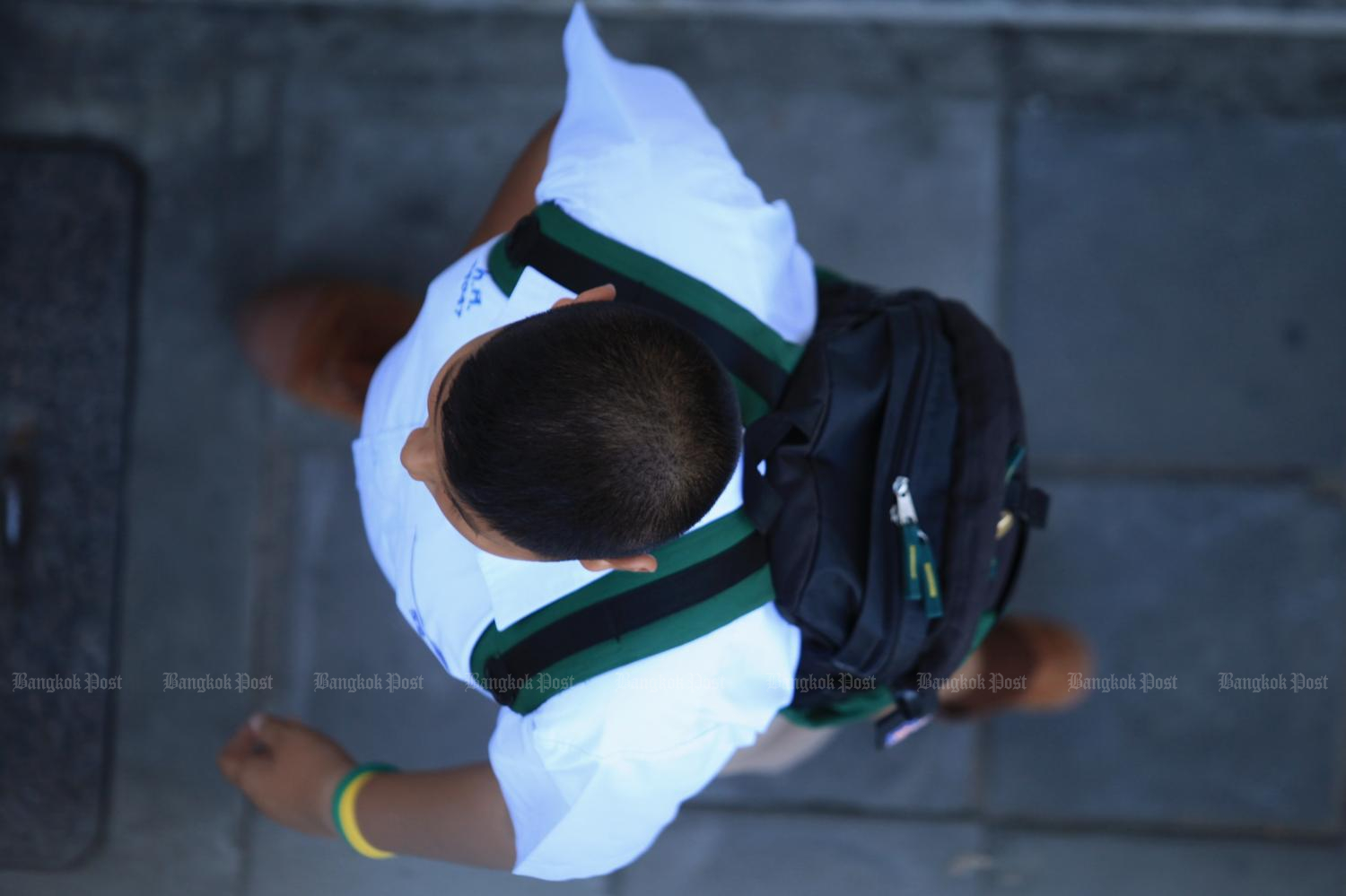
'An exam question like this should not even exist."
This is what a student of mine back at Thammasat wrote in his final exam essay to the question: Would you choose a job that pays well or a job that you like?
What was supposed to be 500-word essay turned out to be two-page long maturely written perspectives on his future career plan briefly summed up as, "It's all relative. Duh!"
Last year in July, 55 political science students at Chulalongkorn University submitted a petition to their dean to review a professor's allegedly politically biased style of teaching and assessment.
Also last year, we saw student protests against dodgy school administrations at two Thai elitist boy schools: Suankularb College and Bangkok Christian College. Not to mention the flower arrangements on Wai Kru Day and the sports day parades with their political messages against authority captured in social media.
Last week we met Ploy who staged a protest labelling herself as a "bad student" who deserved to be punished and humiliated by getting her hair shorn.
This is the time and age that students are free to question exams and the order they are in. If you feel irritated or offended, it doesn't mean you're right. If it ever means anything, you are just insecure adults. And no one should be responsible for how you feel.
The feeling of insecurity is from your own inability to adapt yourselves and realise that different generations have different sets of beliefs, hold different values and behave according to different contexts.
Clearly the young ones are not given enough credit for their originality. To think that they are not capable of thinking by themselves and have been manipulated by left-wing public figures with ill intentions is a sad illusion. Plus, it is hard to admit that the adults cannot control their minds any more.
Rules on hair length, colour of hair ribbons, shoe patterns, female undergarments and of course the school/university uniform are typical representations of the "style over substance" value. Control and order are obsolete. Here in Thailand, it is orchestrated in the name of the virtue of Thai culture. This is even more true when the country is led by a military government.
The Organisation for Economic Co-operation and Development, the people behind the Pisa test, released their results of the disciplinary climate index in 2019. Most wealthy nations like Singapore, Finland and Canada ranked lowly on the scale, whereas less wealthy nations like Kazakstan, Albania and Thailand, scored higher on discipline.
There are some exceptions. South Korea ranked the best in the world on discipline and at No.9 on literacy, numeracy and science combined. China was at No.4 on discipline and No.1 on scholastic performance.
We have not heard much about this index because, you know, people in their right minds know they shouldn't waste their time mixing control and discipline with education. But just imagine. If one day, Thailand ranked among the top three, more and more control would be put in place. And discipline would take priority. So, we'd better not give them the idea.
Earlier this year, Norway debated about having school uniforms. For an egalitarian society like Norway, putting students in school uniform may help end "class hierarchy" rather than to keep them focused on school subjects and not on romance. But the idea didn't fly, obviously. It seems to most Norwegians this was against the Norwegian mentality and sense of free choice.
I do think it makes sense to maintain a bit of order in the education setting like reducing noise and disorder so people's learning does not get interrupted. But most arguments we hear from these finger-wagging teachers come from their view of discipline as the chastity belt.
Making girls wear unusually short hair and an impractical undershirt in this weather just because it has been practised for 100 years does not really make sense. We get it.
The idea is to make their looks as repellent as possible before and during puberty. Then, they will focus more in school. Sure ... that will work.
Any given school in Thailand is a representation of the society at large.
Most teachers often hide behind the authority. What they think they have more than the students: Power -- weapons, grades, money. They enjoy suppressing students' opinions and exerting their authority because, let's face it, they can't keep up with the kids.
Let go of your ego. It's OK to not be the smartest one in the classroom.
When students are upfront and argue with you, it's because they want to reason things out and learn from your experience. It is possible that they will corner you with their fresh logic and postmodern views of reality. In your time, observing your traditions and being obedient and following orders have gotten you this far in life. But none of these will prepare them for the future.
Teachers have to start to take them and their ideas seriously. Stop saying, "kids these days..." Stop being nostalgic, thinking the past was a better time, the country was a better place and you lot were better people.
Or kids these days spend too much time on the internet and are getting manipulated by fake news. You are the fake news!
Control breeds a lack of trust. Societies with higher levels of trust have more effective education because students trust their teachers and each other more, not because of fear.
Today we see our brave young generations stand firm for their beliefs. We just need to give the Thai society time to grow more mature and brave enough to accept this.
But until then, leave them kids alone.
Pattamawan Jimarkon Zilli is an associate professor in Higher Education Pedagogies at the University of Stavanger, Norway.